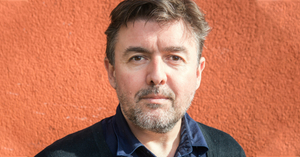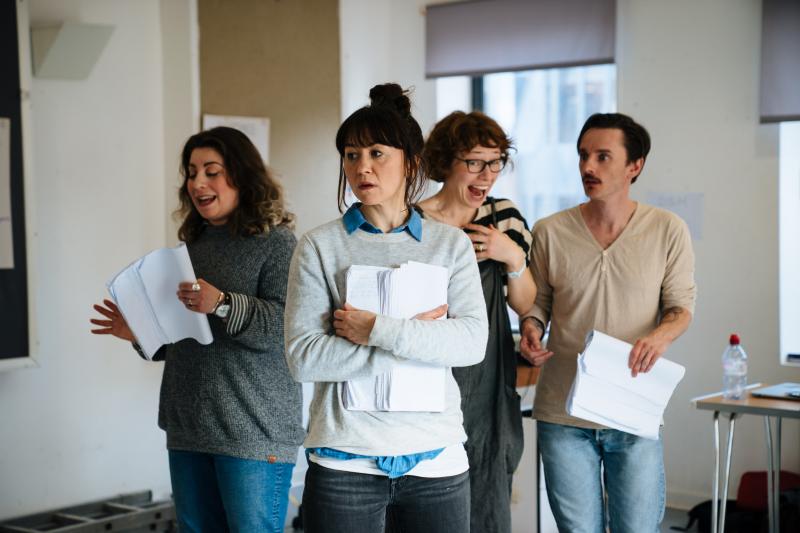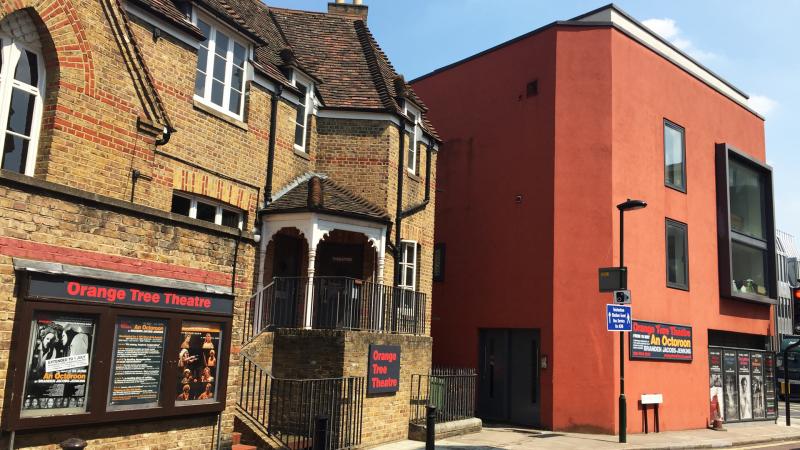The Orange Tree's Paul Miller Talks About Theatre's Shutdown

With all theatres closed to the current pandemic, BroadwayWorld caught up with the Orange Tree Theatre's Artistic Director Paul Miller about the realities of closing the theatre and his thoughts and plans for the future.
Closing the theatre must have been extremely difficult. Can you talk us through the process of how you did it?
It had become clearer and clearer in the week leading up to Monday, 16 March that things were untenable. Performances with dwindling audiences went from feeling valiant and hardy to anxious and finally unsafe. It seemed unrealistic to start offering parts to people in productions that just weren't going to happen. We had come to the conclusion that we would be closing some hours before the Prime Minister that night advised people not to go to theatres. After that, things happened with a certain brutal efficiency.
What's the worst aspect of having to close the theatre?
It was painful and went against our nature: we exist to open doors and gather people together, not do the opposite. The Mikvah Project, the play we had on, was very special and so that felt like a wrench. The actors had no notice that they'd already given their last performance. Equally, the glorious cast of Last Easter, who were in rehearsal in their third week, just had to stop at the exact moment they were gaining momentum. The rehearsal photos exist as a tantalising glimpse of what should have been.

The Orange Tree has a very loyal membership and following - what have members of the public done to show their support?
We had to offer over £100,000 worth of tickets back to shows that were cancelled: our audiences either donated back the cost or asked for a credit note rather than a refund on over 70% of these tickets. That's remarkable. And we've been overwhelmed by messages of support. It's extraordinarily touching.
Bryony Lavery's play Last Easter was due to open on 3 April. Are there any plans for the play when you reopen?
We definitely want to regroup and get the band back together as soon as we can: it's such an exciting play and a great team. It's about the theatre community's response to a crisis - a love letter to theatre. What could be better?
You've released Amsterdam for people to stream online and it's been watched over 8,000 times so far. Is an online screening like this something you'll repeat in the future?
We always intended that to be just the first of a regular thing, certainly, and it's something I'd wanted for ages. Unlike with other streamed shows from end-on theatres, you see the audience and sense what their presence means in performance at the OT. It's an expensive process though and will always need special funding. It's a way of conveying our work and the unique OT experience to the world: I love it.
You've set up the Orange Tree Survival Fund. Can you tell us a bit more about that?
With no income and lots of monthly fixed costs (beyond the staff whose wages can be supported temporarily through the Jobs Retention Scheme), we have to find a way of hibernating, ready to reopen when that time comes. It's about keeping us alive as a business really, with the team together. When we reopen, we will once again be a major employer of freelance artists of all kinds: over the next 15 months, we plan to spend £441,000 on freelancers.

As the Orange Tree relies so heavily on ticket sales, do you feel optimistic about the future?
In the long run, yes. We don't, of course, have any idea quite how the recovery period from this is going to feel or how audiences will react in the short term. But the desire to gather together to share an experience in a theatre is as old as history and isn't just going to go away. So I believe that people will want to come back enthusiastically, having been starved of this - we just don't know exactly when.
How do you see the theatre industry changing as a result of the current situation?
I fear that so many artists and indeed companies will just not be able to survive in the business if the whole economy of the theatre shrinks. So that means fewer opportunities for people, which is very upsetting. More positively, perhaps in lots of ways, both practical and artistic, we might find that we're better at focussing on what's essential: connection, presence, story, empathy.
What have you, personally, been doing to get through the lockdown?
Like everyone, I live my life mainly on Zoom and it's exhausting. Still, better that than going out and trying to dodge the runners.
What are you looking forward to most when you reopen?
Getting back into the OT's unique space. Making interesting things happen between people again. And experiencing the two best sounds in a theatre: the deep silence of shared experience or, equally, the massive laughs. I look forward to both, intensely.
Dame Judi Dench in Conversation, hosted by Giles Brandreth at the Orange Tree Theatre, will be available to stream online from 26 April for a small fee. All proceeds go to the OT Survival Fund
Photo Credit: Richard Davenport, Helen Murray
Comments

Videos

